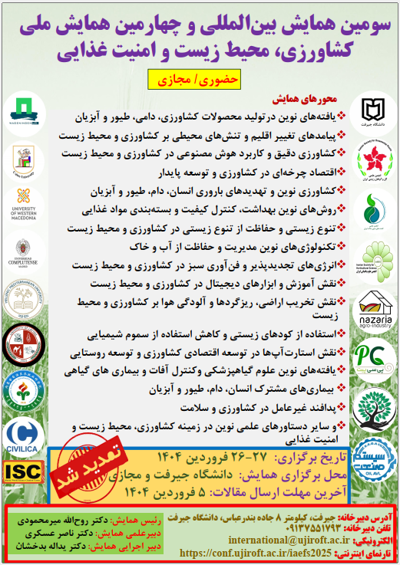0% Complete

نویسندگان :
کلمات کلیدی :
چکیده :
لیست مقالات بایگانی شده
محمد حسین تنورساز - محمد جواد ادیبیان
محدثه امیری - سیفاله فیضی خانقاه
هاجر سلیمانی - رضا مستوفیزاده قلمفرسا
الهه اکبری - مهرداد جیهونی
بهناز افضلیان مند - نادیا عسگرزاده
محمدحسین صیادی - ُامیر حمزه درخشانی - محمد ابراهیم صحتی ثابت - حسین هادی زاده - امین ترابی فر - حسین میرکی - نجم هادی زاده
روح اله میرمحمودی - محدثه محمدی ساردو
حسین موسی زاده - مهران محمودی - یوسف نیک نژاد
جمیل بهرام پور - علی حسین پیرای
مجید یعقوب زاده - محبوبه حور - فریبا فریور

